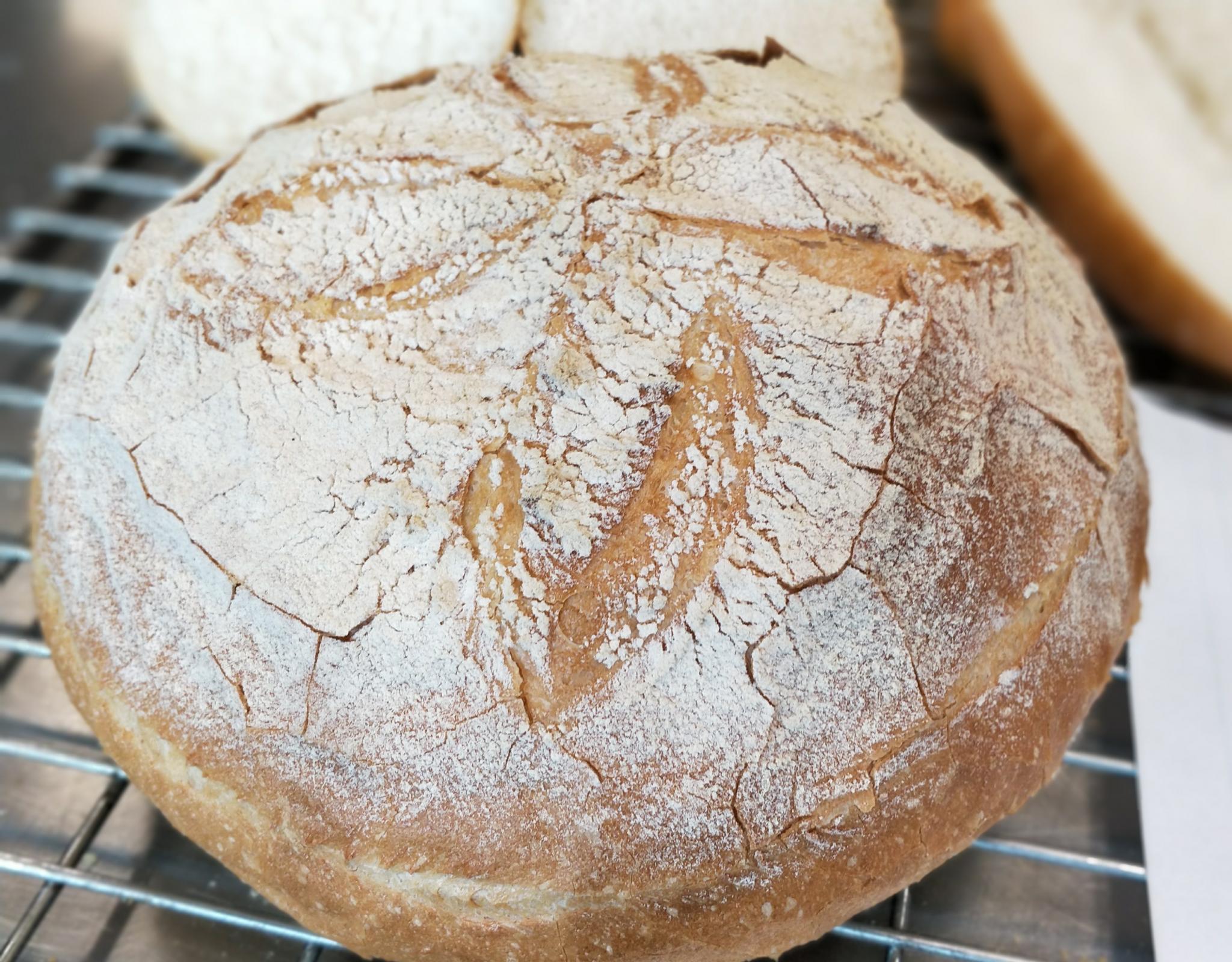
Old French Boule

The French Boule is an ancient recipe that has been used for over a thousand years. It is so intertwined in French baking that the French words for bread baker and bakery(boulanger and boulangerie) come from the loaf.
In it's simplest form, boule means round...like a ball.
Keeping true to it's artisan upbringing, this loaf should always be baked in a hearth/peel oven, wood-fired if possible.
Ingredients: Only 4 simple ingredients...
Strong white flour 100%
Water 80%
Compressed block yeast 2.5%
Salt 2%
Method:
1.Incorporate all ingredients in a bowl, working inwards folding as you go. When you think it is developed and all dry pockets are well mixed, pull off a piece and do a quick window test.
2. Remove from bowl and place on a lightly oiled or floured bench(which ever is your preference), round the dough and leave it for 1hr.
3. Place in a fridge for....1 week, overnight is acceptable, but the longer the better.
4. Remove the dough and divide into 700gram pieces. Try to be accurate and decisive with your cuts to keep the protein network as intact as possible.
5. Gently fold all edge to the top, flip over so all seams are on the bottom and remould into a ball. Use dusting flour here as necessary.
6. Rest for 5 minutes, do a final reshape while being careful not to damage the gluten film.
7. Place on parchment paper and proof to height. Once it is fully proofed, dust with flour and score however you desire.
8. Bake on the floor of a peel oven, or on a stone if you do not have one. 240degrees Celsius for ~20min.
9. When you think it is ready, carefully remove from the oven and tap the bottom of the loaf, listening for a hollow sound. If you can't hear the sound, bake for another 3min and repeat.
10. Cool on a rack and enjoy.
Sorry for the lack of crumb photos. I will update with them soon.


looks good. Did they have compressed yeast a thousand years ago? Probably originally a naturally leavened bread?
Yes, I believe it was naturally leavened by bulk fermentation for more than 3 days at room temperature.
Would be hit and miss to go this route though.
As it has been around so long, I bet today's Boule is nothing like the ancient version.
I just want to crack into it!
Gotta work on that fleurs-de-lis scoring a little bit. :)
Don't know where I can buy fresh yeast here in NZ although you seem to be able to get it. any suggestions?
might have a go at this although don't have the luxury of a wood fired oven.
Leslie
Ask at the in-store bakery at a supermarket, or try a small local bakery- I am sure they will be willing to give you some.
During measuring I hoist in a big fat spoonful of Einkorn, gives the dough the "stickies" pretty bad but it sure improves crumb flavour. A spoon or two of rye is also nice. :) ( just can't help myself )
Not sure about NZ but IGA Supermarkets here in Western Australia sell compressed yeast in small pieces around 100g cut from the 1 kg block for around 80 cents which makes it most attractive.
With compressed yeast @ 2.5% and not using retardation the dough would bulk ferment in about 1 TO 1 and a half hours.
Regards Derek
They would have used soft white wheat flour, rainwater / river water, likely no salt (or very little), and either a levain or ale barm. No refrigeration either. The form would more likely have been a batard or fendu batard.
Yes, this is my modern take on a French Boule.
It's really hard to know what the ancient version would have been like, I think you would be on the right track though.
A lot of French techniques are different to how they would have been, and I believe a lot of the methods have been lost/modified over the years, especially with the 1920's law stopping bakers from working before 4am.
I found this really interesting article on French baking history.
http://leslefts.blogspot.co.nz/2015/07/french-bread-history-late-medieval.html?m=1
did they prohibit working before 4am??